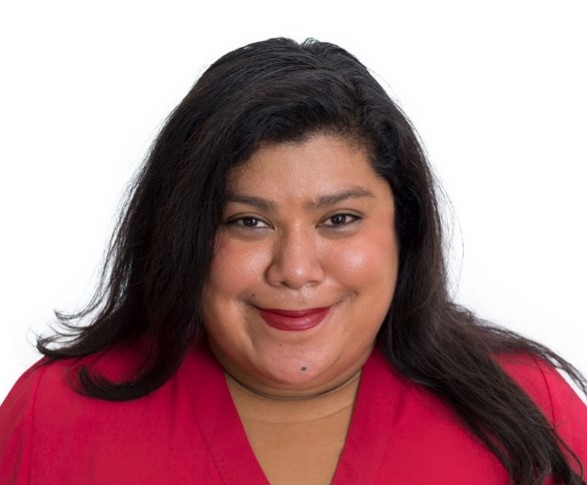
The importance of cultural considerations in hearing healthcare for African Americans
In recognition of Black History Month, this article explores the cultural factors and disparities that influence hearing healthcare for African Americans and strategies for addressing them.
“When was the last time you had your hearing tested?”
This is a question I often ask at community events where we offer free hearing screenings. Often, when I ask this question to African American patients, the response is either, “never”, or “not since I was a child”.
Working in Chicago provides the opportunity to work with patients from all different types of communities. However, one thing we’ve noticed in audiology, is how few African American patients seek our services. Hearing healthcare is a vital yet often overlooked aspect of overall health and well-being. For African Americans, cultural, historical, and systemic factors shape their access to and experiences with hearing healthcare, contributing to persistent disparities.
As hearing healthcare professionals, we must understand the unique challenges faced by this population and work to overcome these barriers with humility and openness. Openness to learning about others’ experiences and seeing the world through their lens.
A legacy of medical trauma and mistrust
The historical context of medical care in the United States provides critical insight into the mistrust many African Americans feel toward healthcare institutions. Unethical experiments, such as the Tuskegee Syphilis Study, the use of Henrietta Lacks’ cells without consent, to ongoing racial bias in medical treatment, have created generational mistrust in medical institutions.1-3
This mistrust extends into hearing healthcare, where skepticism about diagnoses and treatments may deter individuals from seeking timely care. For example, African Americans may hesitate to seek hearing healthcare due to fears of discrimination or concerns that their problems will not be taken seriously.4
As hearing healthcare professionals, we must recognize this valid mistrust and never invalidate someone’s feelings surrounding this topic.
Systemic barriers and disparities
Systemic inequities further exacerbate disparities in hearing healthcare for African Americans. They are disproportionately affected by social determinants of health, including economic instability, limited access to quality education, and inadequate healthcare access.5
These factors limit access to hearing healthcare services, such as audiology evaluations, hearing aids, and cochlear implants. Studies show that African Americans are less likely than their white counterparts to utilize hearing aids, even when diagnosed with hearing loss.6,7
Barriers include cost, limited insurance coverage, and a lack of representation in the hearing healthcare workforce. The absence of Black audiologists and other hearing professionals can further alienate patients and perpetuate feelings of cultural isolation within the healthcare system.2
Strategies for reducing disparities
Closing the gap in hearing healthcare for African Americans requires systemic changes. Policies that expand insurance coverage for hearing aids and other treatments are essential to reducing financial barriers. Furthermore, healthcare institutions must invest in diversifying the workforce and increasing representation among audiologists and hearing healthcare providers.5
Community-based initiatives can also play a vital role. Partnering with trusted organizations, such as churches or cultural centers, can facilitate outreach and education efforts. By meeting people where they are, these programs can help bridge the gap between underserved populations and essential services.
We have seen this firsthand through community hearing screening events that we have supported throughout the years in collaboration with community organizations. African American communities and organizations appreciate partnering with professionals who can contribute to an improved quality of life.
Conclusion
Addressing disparities in hearing healthcare for African Americans demands a multifaceted approach that considers cultural, historical, and systemic factors. By fostering trust, promoting cultural competence, and advocating for systemic reforms, healthcare providers and policymakers can work to ensure that all individuals, regardless of race or background, have equitable access to high-quality hearing healthcare.
The journey toward equity is not only a matter of health─it is a matter of dignity and respect for the lived experiences of African Americans. Only through such efforts can the hearing healthcare field truly serve all communities and promote better outcomes for everyone.
References:
- Alsan, M., Wanamaker, M., & Hardeman, R. R. (2020). The Tuskegee Study of Untreated Syphilis: A Case Study in Peripheral Trauma with Implications for Health Professionals. Journal of General Internal Medicine, 35(1), 322–325. https://doi.org/10.1007/s11606-019-05309-8
- Pew Research Center. (2024, June 15). Black Americans and Mistrust of the U.S. Health Care System and Medical Research. https://www.pewresearch.org/race-and-ethnicity/2024/06/15/black-americans-and-mistrust-of-the-u-s-health-care-system-and-medical-research/
- Scharff, D. P., Mathews, K. J., Jackson, P., Hoffsuemmer, J., Martin, E., & Edwards, D. (2010). More than Tuskegee: Understanding Mistrust about Research Participation. Journal of Health Care for the Poor and Underserved, 21(3), 879–897. https://doi.org/10.1353/hpu.0.0323
- Pew Research Center. (2022, April 7). Black Americans’ trust in medical scientists and views about the potential for researcher misconduct. https://www.pewresearch.org/science/2022/04/07/black-americans-trust-in-medical-scientists-and-views-about-the-potential-for-researcher-misconduct/
- U.S. Department of Health and Human Services. (2023). Advancing Better Health Through Better Understanding for Black Americans. https://www.hhs.gov/black-history-month/reading-list/index.html
- AARP. (2024, December 13). Facts About Racial Disparities in Hearing Aid Access. https://www.aarp.org/health/conditions-treatments/info-2024/racial-disparities-in-hearing-aid-use.html
- Lin, F. R., Thorpe, R., Gordon-Salant, S., & Ferrucci, L. (2011). Hearing loss prevalence and risk factors among older adults in the United States. The Journals of Gerontology: Series A, 66(5), 582–590. https://doi.org/10.1093/gerona/glr002
Co-Authors

Brittney Sprouse, Director of Audiology and a pediatric audiologist at UChicago Medicine, USA
Dr. Sprouse received her Doctorate in Audiology from the Northeast Ohio Au.D. Consortium (University of Akron) in 2009. She is not only an American Board of Audiology Certified audiologist, but she also holds the Pediatric Audiology Specialty Certification (PASC). She has been actively involved on the state and national level, including 2019 President of the Illinois Academy of Audiology (ILAA), Past President of the Ohio Academy of Audiology (OAA), additional board and committee positions, and is currently on the board of directors for the American Cochlear Implant Alliance (ACIA).

Eva Lopez, Principal Cochlear Implant Consumer Specialist at Advanced Bionics, USA
Born and raised in Chicago with roots in Guatemala, Eva is a passionate advocate for improving access to audiology services in Spanish-speaking communities. Eva works for Advanced Bionics, as a Bilingual Cochlear Implant Consumer Specialist. She holds a Doctorate of Audiology from the University of Wisconsin-Madison and has experience as a clinical audiologist, primarily working with Spanish-speaking patients in Chicago.
